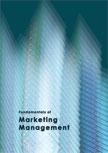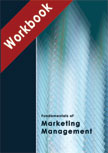Glaxosmithkline's Marketing Strategy for Requip: A Case Study in Product
Lifecycle Management
|
|
ICMR HOME | Case Studies Collection
Case Details:
Case Code : MKTG173
Case Length : 23 Pages
Period : 2002-2007
Pub Date : 2007
Teaching Note :Not Available
Organization : GlaxoSmithKline, Plc.
Industry : Pharmaceutical
Countries : USA, Europe
To download Glaxosmithkline's Marketing Strategy for Requip: A Case Study in
Product Lifecycle Management case study
(Case Code: MKTG173) click on the button below, and select the case from the list of available cases:

Price:
For delivery in electronic format: Rs. 300;
For delivery through courier (within India): Rs. 300 + Shipping & Handling Charges extra
» Marketing Case Studies
» Marketing Management Short Case Studies
» View Detailed Pricing Info
» How To Order This Case
» Business Case Studies
» Case Studies by Area
» Case Studies by Industry
» Case Studies by Company

Please note:
This case study was compiled from published sources, and is intended to be used as a basis for class discussion. It is not intended to illustrate either effective or ineffective handling of a management situation. Nor is it a primary information source.
Chat with us

Please leave your feedback

|
|




<< Previous
Restless Marketing? Contd...
|
After the approval of the drug in the US, GSK's marketing of the drug revolved
around direct-to-consumer advertising7 (DTC advertising) campaigns. The initial
ads were disease awareness ads that did not mention the brand name of the drug.
GSK followed this up with branded ads.
It also used key opinion leaders8 (KOLs), such as sleep specialists, to raise
awareness about RLS and the scope for Requip among general practitioners9 (GPs). GSK's efforts to increase awareness of RLS and its efforts to get Requip
approved for RLS got a lot of media attention, creating publicity for the
disorder as well as the drug.
|

|
The results were spectacular. Requip's sales, which had been steady since its
launch in 1997, grew significantly after its approval for the treatment of
RLS. Requip sales in 2005 were £156 million, a growth of 34 percent over
2004.
|
|
In 2006, the sales increased further to £268 million.
The growth in global sales was propelled by the growth in the US where
sales increased from £53 million in 2004 to £176 million in 2006. Though
the growth rate in sales of the drug also increased in Europe and the
rest of the world, it was not as spectacular as in the US. GSK got
regulatory approval for Adartrel for the treatment of RLS in France and
the UK in 2004 and 2005 respectively. But it had to wait till mid-2006
to get the marketing approval in other European Union (EU) countries.
GSK said that getting the drug approved for RLS was an example of the
importance it placed on product lifecycle (PLC) management10 of a brand... |
Excerpts
>>
|
|










